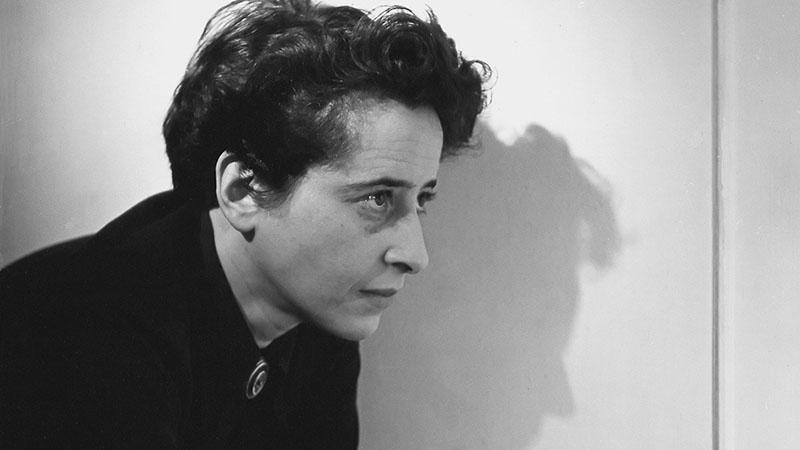Hannah Arendt
Episode #1 of the course Great modern philosophers by Tom Butler-Bowdon
Welcome to the course!
My name is Tom Butler-Bowdon, and I’m the author of 50 Philosophy Classics: Profound Insights and Powerful Thinking from Fifty Key Books.
Over the next ten days, you’ll learn about some of the people whose ideas shaped the modern world and their books.
Let’s start with Hannah Arendt.
In a nutshell: The nature of being human is to do the unexpected, and every birth carries with it the possibility of a changed world.
German-born Hannah Arendt was one of America’s leading 20th-century intellectuals, rising to prominence with her study of Hitler and Stalin, The Origins of Totalitarianism (1951), then achieving fame with Eichmann in Jerusalem (1963), a study of the trial of Nazi Adolf Eichmann that included her concept of “the banality of evil.” The Human Condition (1958) is the best expression of her larger philosophy. Though it can be studied as a work of political philosophy, it also provides an inspiring theory of human potential.
We Can Act
While animals can only behave according to their programmed survival instincts and impulses, human beings can act, Arendt reminds us, going beyond our selfish biological needs to bring something new into being whose value may be recognized in a social and public way. (Like Socrates drinking hemlock by his choice or someone who gives their life for another, we can even act against our very survival instinct.) And because of this ability to make truly free decisions, our deeds are never quite predictable. Human action, Arendt says, “seen from the viewpoint of the automatic processes which seem to determine the course of the world, looks like a miracle.” Our lives are about “the infinite improbability which occurs regularly.” The essence of fascist regimes is in their denial of this natality, or individual possibility.
What we are is our body, Arendt notes, but who we are is disclosed in our words and deeds. We come to know who a person is not by being “for” or “against” them, but by simply spending time with them. Over a period of time, who a person is cannot help but be revealed. Thus, people live together not just for emotional or material support but also for the sheer pleasure of seeing other people reveal their character. What is most interesting to us about an act is not the act itself, but the agent it reveals. Yet who we are may never be known by ourselves; it is something only seen fully by others. The highest revelation of a person, we call “glory.”
Forgiveness and Promise Keeping
Jesus of Nazareth’s emphasis on action, particularly the act of forgiving, was an important point in history, since this discovery allowed us, not only God, the power to nullify past actions. This power Jesus put almost on the level of physical miracles, given its ability to transform worldly situations. Whereas the wish for vengeance is automatic and so a predictable action, the act of forgiving, because it seems to go against natural reactions, can never be predicted. Going against the animalistic reaction of revenge, it frees both the forgiver and the forgiven from an act perpetrated. Action is the only thing that stops human lives from hurtling from birth to death without real meaning.
The acts of forgiveness and promise keeping redeem mankind and take us to a new level. They are also creative actions that confirm our uniqueness. We don’t have to worry about “competition” because in the way these actions are expressed, “nobody is ever the same as anyone else who ever lived, lives or will live.”
Final Word
The conclusion of biologists and sociologists of the last 30 years—that people are shaped by their brain’s wiring, their genes, and their environment much more than they think—would seem to pour cold water on Arendt’s theories of action and decision.
And yet if you look at history, which is, after all, the sum of millions of individual decisions, it would be wrong to suggest (as Hegel and Marx did) that the story of humanity involves a certain inevitability. Rather, as one of Arendt’s key influences (and one-time lover), Martin Heidegger, was keen to point out, individuals matter. For Arendt, history is a chronicle of the exceeding of expectations. People do amazing things, and often, they are wholly unexpected, even by themselves.
Tomorrow…Jean Baudrillard and our “hyperreal” world.
Recommended book
The Human Condition by Hannah Arendt
Share with friends

